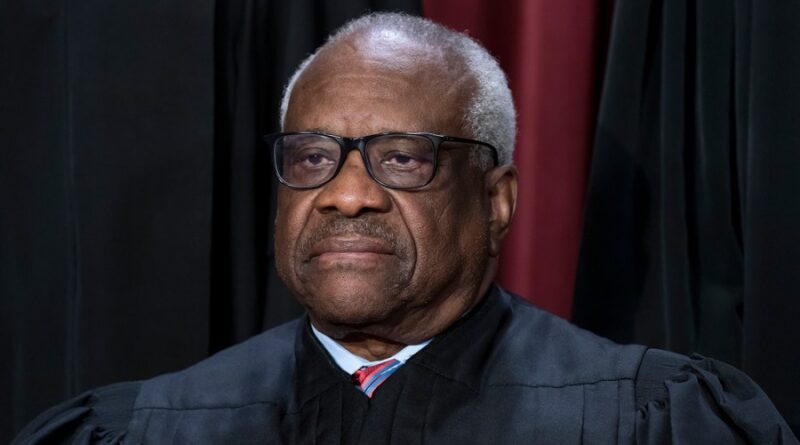Judiciary won’t refer Clarence Thomas, Ketanji Brown Jackson to DOJ over ethics

The federal judiciary’s policymaking body will not refer allegations that Supreme Court Justices Clarence Thomas and Ketanji Brown Jackson violated federal ethics laws to the Justice Department.
In identical letters sent Thursday to Sen. Sheldon Whitehouse (D-R.I.) and Rep. Hank Johnson (D-Ga.), who requested investigations into Thomas over ProPublica reports about free trips he accepted, the Judicial Conference raised questions about whether it even had the legal authority to make the referrals.
Judicial Conference Secretary Robert Conrad said the Thomas request also “largely became moot” when Democrats asked Attorney General Merrick Garland to appoint a special counsel to investigate the conservative justice.
“Justice Thomas has filed amended financial disclosure statements that address several issues identified in your letter,” Conrad wrote.
“In addition, he has agreed to follow the relevant guidance issued to other federal judges, which would include the guidance mentioned above,” he added. “We have no reason to believe he has done anything less. That provides one answer to your referral request.”
In a third letter sent to the Center for Renewing America — a conservative group founded by Russ Vought, President-elect Trump’s nominee for director of the Office of Management and Budget — the conference declined to refer Jackson, President Biden’s sole appointee to the high court, to the attorney general.
Jackson did not originally disclose income from her husband’s medical malpractice consulting work. The group in its ethics complaint also took aim at the unknown private funding source for Jackson’s investiture ceremony at the Library of Congress, arguing it should’ve been disclosed.
“It’s a sad commentary that the media does not care about liberal justices not following the ethics disclosure rules and a think tank needs to file a complaint to get it covered and effect change,” Rachel Cauley, spokesperson for the Center for Renewing America, said in a statement.
Conrad’s letter noted Jackson amended her disclosure to list the omitted income from her husband. The letter went on to question whether the conference has authority to refer justices to the attorney general and indicated the conference will study the issue in the months ahead.
“There is reason to doubt that the Conference has any such authority. Because the Judicial Conference does not superintend the Supreme Court of the United States and because any effort to grant the Conference such authority would raise serious constitutional questions, one would expect Congress at a minimum to state any such directive clearly,” Conrad wrote.
“But no such clear directive appears in this provision,” he continued. “The provision in fact contains a suggestion to the contrary.”
The Supreme Court became embroiled in an ethics firestorm in 2023 after ProPublica revealed Thomas accepted luxury trips and gifts from Harlan Crow, a billionaire and GOP mega-donor. Thomas has said the trips did not need to be disclosed under previous guidance that has since changed.
Justices appointed by both parties have since faced their own ethics controversies, spurring increased calls from Democrats for stricter rules. The efforts have stalled amid firm opposition from Republicans, who have cast the push as intended to tear down the conservative-majority high court.
The court has resisted Democrats’ calls for an outside intervention, instead releasing a new statement of ethical principles that all nine justices subscribe to. But Democrats have criticized the new statement for not including any binding enforcement mechanism.
Whitehouse, who chairs the Senate Judiciary Committee’s subcommittee on federal courts, and Johnson, ranking member of the House Judiciary Committee’s subcommittee on courts, have become some of Congress’s loudest critics of the court.
Thursday’s responses came after the duo sent multiple letters over the past two years encouraging the federal judiciary to refer Thomas for alleged “willful” violations of financial disclosure requirements.
“The judiciary’s response contains a number of inconsistencies and strange claims, and ultimately doesn’t address the only real question the Judicial Conference should’ve been focused on for the nearly two years it spent on this matter: Is there reasonable cause to believe that Justice Thomas willfully broke the disclosure law?” Whitehouse said in a statement.
“By all appearances, the judicial branch is shirking its statutory duty to hold a Supreme Court justice accountable for ethics violations,” he added.
The Hill has reached out to Johnson for comment.
Updated at 9:55 a.mm EST

